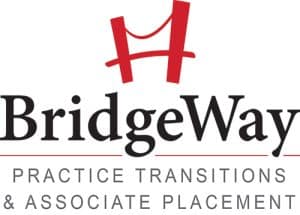6 Things NOT to do when Preparing to Sell your Practice
I am often asked by dentists considering retirement what they should do to prepare to put their practice up for sale. These dentists are eager to do what they can to increase their chances of a timely and profitable sale when they are ready. Unfortunately, there are a lot of misguided decisions that tend to be made during the last years of practice that will likely not payoff when the time comes to sell. Here are 6 things NOT to do when preparing to sell your practice.
Give the staff a raise
Maybe you haven’t given your staff a raise in longer than you’d like to admit. Maybe you feel bad about this and think you can make it up to them by giving them a raise before you sell. You might have to bear the cost of this decision in the short term, but it will be the buyer that bears it in the long run, not you. Although this may feel like the right thing to do by your staff, one of the biggest expense of a dental practice is the staff salaries and increasing their pay above 28% of revenue could cost you more than just their raises. Buyers really focus on cashflow when deciding whether to purchase a specific practice or not. If the supply expense is too high, a buyer can rationalize it by saying they can shop smarter. If the lab expense is too high, they can look to switch labs. If the staff expense is too high, they cannot walk in the door and cut salaries or fire people. This is much too risky when going through a transition. Plus, it would undo the good deed you feel you did by giving everyone raises in the first place. When it comes to your staff and setting your practice up for a successful sale, see what you can do to make sure this expense is in line, 28% of revenue, so that you don’t lose a potential buyer over it.
Let your lease expire
Many dentists target their retirement date around the same time as their lease will expire. Although they don’t plan on closing their doors and walking away, they think that timing their exit this way is the smart thing to do. However, most buyers will need the right to stay in the facility for at least 10 years after they purchase the practice if they want to get bank financing to buy it. If you let your lease expire, you run the risk of not being able to get a lease long enough to satisfy the lenders, therefore limiting your buyer pool to cash buyers or practice owners nearby who are interested in a merger into their space. Do yourself a favor, look over your lease. If it is expiring soon and you don’t have a renewal in place, consider hiring a real estate professional to help you obtain a fair lease that can be assigned to a buyer when you are ready to transition. Negotiate like you plan on staying there for the entire length of the lease; don’t agree to terms that you wouldn’t normally accept just because you know you won’t be there the entire time. Just like with staff, the rent is a large expense and if you have a bad lease in place it can affect a dentist’s decision to purchase your practice.
Purchase new equipment
For most practice owners, you do not need to purchase new equipment before you sell your practice. You do, however, need to make sure your existing equipment is in good working order. Since the value of your practice is based more on cashflow than tangible assets, you will probably not recoup your investment if you pour tens of thousands or more dollars into new equipment right before you sell. The only exception to this is upgrading to digital x-ray. If you are still developing film, you should strongly consider making the switch to digital before trying to sell your practice. Most buyers have never worked with film and will consider upgrading to digital a necessary expense if they purchase your practice. This will make them inclined to negotiate the price of the practice to cover this cost. If the buyer wants to make any further improvements to the equipment, it will hopefully be improvements that will also increase the revenue of the practice which in turn should increase the value of the practice and their equity in it.
Let your staff in on your plans
When I am asked when the right time to tell the staff that they are selling is, I always disappoint with my answer. There is no perfect way to do this. My advice is always to wait until you’ve cashed the buyers check to tell the staff. Many people feel uncomfortable with this because they feel like they are lying to people who have dedicated years of their life to the practice and them. But, knowing it could take a few years to sell your practice, it is much more unfair to the staff to make them live in uncertainty for a couple of years while you work to find a buyer. Imagine the stress that would put them through! Even when you have located a buyer and things are moving along nicely, until money changes hands, the buyer can back out. We recommend that you wait until the transition has been consummated, then you call a staff meeting letting them know that you have sold the practice and then immediately introduce them to their new boss. That way they won’t go home and have nightmares about this new monster that is taking over. Some might be angry that you didn’t tell them sooner, but if you are of retirement age, they probably won’t be surprised.
Reduce your hours
Unless you don’t need the full value of your practice in order to retire, you need to maintain your revenue until you sell. The biggest red flag for a purchaser is declining revenue, even if it can be explained by reduced hours and days. By slowing down while you are still the owner, you are changing the momentum of your practice and reducing its value. If you still love practicing dentistry, but want to work less, you have options outside of running your practice into the ground. You can hire an associate to pick up the slack, you can sell with the right to stay on afterwards, or sell and work somewhere else. If you choose to reduce your hours before selling, do so with your eyes wide open and don’t be surprised when you have to take dramatically less for your practice, if it can be sold at all.
Ramp up production
I am sure I am going to catch some flack for this one, but for most older dentists, this is not the right thing do to because it is a gamble that probably won’t pay off. If you have been coasting for the past ten years and all of a sudden try to ramp up your practice because you want to retire in 3 years, beware. First of all, if increasing your revenue was as simple as a change in mindset, everyone would be doing it. Increasing your revenue is hard work. Even if you put thousands of dollars into marketing, consultants, and new equipment there is no guarantee that you will increase the revenue enough to move the needle on the value of your practice. And if your expenses increase during those years or ramping up, your net will decrease. This means you will be making less money and your cash flow will drop which could put downward pressure on the value of your practice. You can find yourself three years down the road, exhausted, with less money in the bank and a lower valued practice unless you really know what you are doing. I am not saying that it won’t work, I am just saying that most dentists who see retirement in the horizon are in the wrong frame of mind to make this ramp up successfully pay off. Be realistic about the time and energy you have to devote to this at the twilight of your career. You might realize that quality of life during these years is just as important as a few extra dollars.
Final Thoughts
Every practice and every practitioner is different. Your exit plan should be customized to you and your situation. If you aren’t sure which way to go, give us a call for a free consultation. We’d love the opportunity to work with you!

